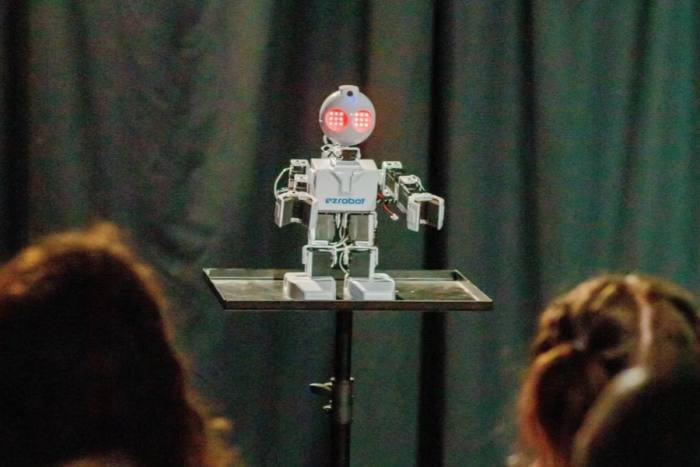Receive free Global Economy updates
We’ll send you a myFT Daily Digest email rounding up the latest Global Economy news every morning.
Good morning. Western companies are warning that China’s gloomy business outlook threatens to have global repercussions, as the world’s second-largest economy recovers weakly from strict Covid-era lockdown.
Corporate reports from a disparate array of companies around the world have documented their worries about China, which has for decades provided a booming market for everything from chemicals to cars, healthcare and travel.
“Demand in China is sluggish,” lamented Joel Smejkal, chief executive of US semiconductor manufacturer Vishay Intertechnology.
José Ferreira Neves, chief of UK ecommerce fashion group Farfetch, agreed: “The recovery is not as explosive as everyone thought it would be.”
Qi Wang, chief investment officer of MegaTrust Investment, which specialises in domestic Chinese stocks, said he could not remember a time when consumer, real estate and business confidence had been so low. “This isn’t just a simple, cyclical issue. It looks like something secular and structural.” Read the full story.
-
US-China news: US commerce secretary Gina Raimondo has arrived in China, where she is aiming to boost business ties and tourism between the world’s two largest economies despite Washington’s move to ban American investment in sensitive Chinese technologies.
Here’s what else I’m keeping tabs on today:
-
Japan rocket launch: The Japanese Aerospace Exploration Agency is scheduled to launch a rocket in an attempt to become the fifth nation to successfully land on the Moon. The launch, originally scheduled for Sunday, was pushed back a day due to bad weather.
-
Results: China’s biggest electric-car maker BYD reports second-quarter earnings.
-
Sport: The US Open tennis tournament begins in New York.
Five more top stories
1. Genetic testing has confirmed the death of Wagner paramilitary group leader Yevgeny Prigozhin, Russian authorities said on Sunday. Western officials assumed that the warlord was killed on the orders of President Vladimir Putin in retribution for a mutiny he led in June. The Kremlin has denied any involvement. Here’s more on the mounting speculation about the future of the group.
-
More Russia news: Arkady Volozh, co-founder of Russian tech giant Yandex, has formally requested that the EU lift sanctions against him in the first big test of whether the bloc will reward prominent figures who publicly break with the Kremlin.
2. The world’s largest shipping and logistics groups are locked in an increasingly intense rush to buy facilities in Asia in an effort to help their customers expand supply chains beyond China. The facilities support the increasingly complex supply chains developing between countries including Vietnam, India and Malaysia. Our report details how Asia’s trade environment is changing.
3. Leading officials and economists gathered in Jackson Hole, Wyoming for their annual meeting have traded last year’s angst about inflation and central banks’ credibility for fears that the upheaval caused by the pandemic and the war in Ukraine have ushered in a new era for the global economy. “There is no pre-existing playbook for the situation we are facing today — and so our task is to draw up a new one,” said Christine Lagarde, president of the European Central Bank. Colby Smith reports from the US Federal Reserve’s three-day symposium.
4. Vietnam’s leadership is under pressure to introduce reforms to reinvigorate the property sector after leverage restrictions designed to limit risks to the economy and an anti-graft crackdown last year hobbled developers and sent bond prices tumbling. Here’s how Vietnam’s property woes mirror those in China.
5. Corporate sponsors are distancing themselves from Spain’s football chief Luis Rubiales, who has been suspended from his job after he forcibly kissed a female player during last weekend’s World Cup final medal ceremony. Rubiales has resisted stepping down despite public outrage after he grabbed the head of top player Jenni Hermoso and kissed her on the lips as players received their medals after Spain’s first World Cup win. Read the full story.
News in-depth

North Koreans are relying on cheaper solar panels to keep the lights on, bypassing the state electricity grid that routinely leaves them without reliable power for months. Citizens are “becoming more self-supporting and self-sufficient” from the government for electricity, one North Korean escapee told the FT. But signs have emerged that the regime intends to assert tighter control over the sector, as it increasingly turns to renewables to help meet its energy needs.
We’re also reading . . .
-
Obituary: Anthropologist Isabel Crook was a rare bridge between the west and China, and a participant-observer as the country transformed. She died at the age of 107 in Beijing.
-
‘Profession of the century’: Here’s why so many workers, from farmers to investment bankers, are ditching long-held jobs to retrain as therapists.
-
Fast fashion: The proliferation of cheap, shortlived garments has come at an enormous environmental and social cost. The EU is preparing to end it.
Chart of the day
Robots are widely used in South Korea’s car and semiconductor plants, but they are also an increasingly visible part of day-to-day life. An influx of cheap Chinese robot waiters is fuelling anxiety over labour shortages and intensifying competition from Chinese tech companies.
Take a break from the news
Can AI crack comedy? British scientist Alan Turing once warned that it would be fiendishly hard for machines to pass as humans by displaying a sense of humour. But robots are getting better at making us laugh — and challenging our notion of human exceptionalism.




Comments are closed, but trackbacks and pingbacks are open.